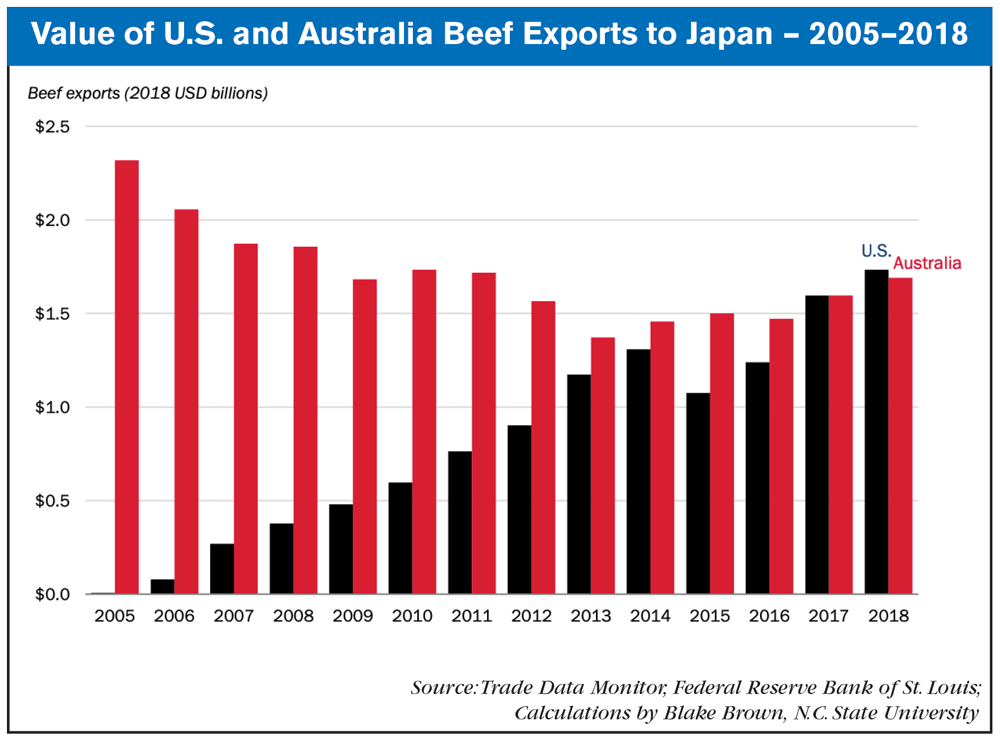Sept. 25 – According to a report from the Wall Street Journal, the U.S. and Japan have signed a trade-enhancement agreement set to lower tariffs on U.S. agricultural exports to Japan. Signed at the UN General Assembly, the agreement aims to relieve stress placed on U.S. farmers by both a lingering trade war with China and a frustrating growing season.
“Japanese tariffs will now be significantly lower or eliminated completely on beef, pork, wheat, cheese, corn, wine and so much more,” said president Donald Trump in reference to the trade deal, as well as mentioning that this trade agreement will open up a potentially $7 billion market for U.S. agricultural goods.
Japan has agreed to lower tariffs on about $2.9 billion of beef and pork. An additional $3 billion in tariffs will be eliminated on other products, including ethanol.
Specifically, this agreement will translate to lowered tariffs on 242,00 tons of U.S. beef imports into Japan in fiscal year 2020, set to increase to 293,000 tons by 2033, according to the Newcastle Herald. Current tariffs on U.S. beef imports to Japan are at 38.5%. The U.S.–Japan trade deal aims to lower that percentage in stages, with a goal of 9% in 2033. Exports of U.S. beef to Japan grew by 10.3% in fiscal year 2018/2019 from the previous year.
The U.S. beef presence in Japan has grown considerably in the last decade, according to research from North Carolina State University. U.S. imports to Japan in 2018 were over $1.7 billion and 47% of the value of all beef exports to Japan. 2018 was also the first year that the value of U.S. beef exports to Japan surpassed that of Australia since data was first gathered in 2005.




